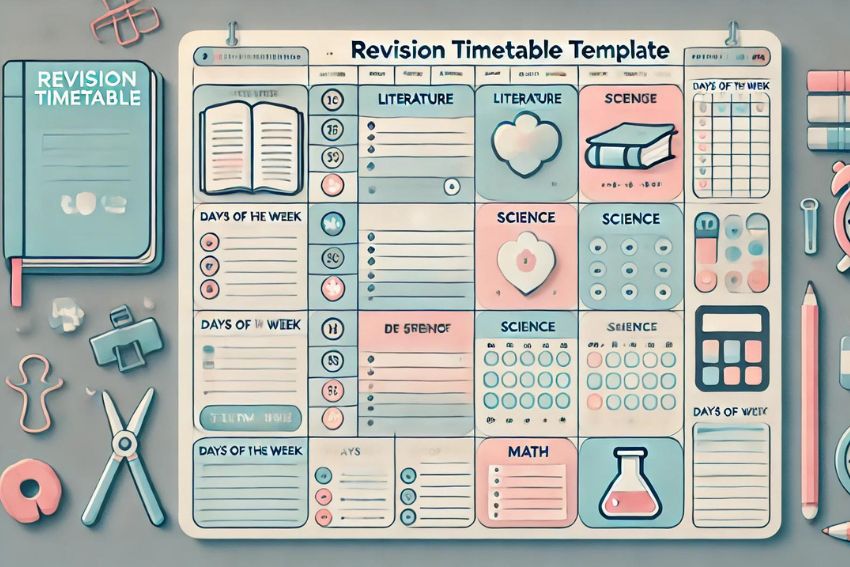Every parent needs to understand what Early Learning Goals are to give their child a better future. Therefore, we have made a full overview of Early Learning Goals. Early Learning Goals play a key role in guiding early years development in children. By the end of the reception year, these ensure children have the knowledge and skills they need to succeed academically. Therefore, parents and educators need to understand and deliver these goals.
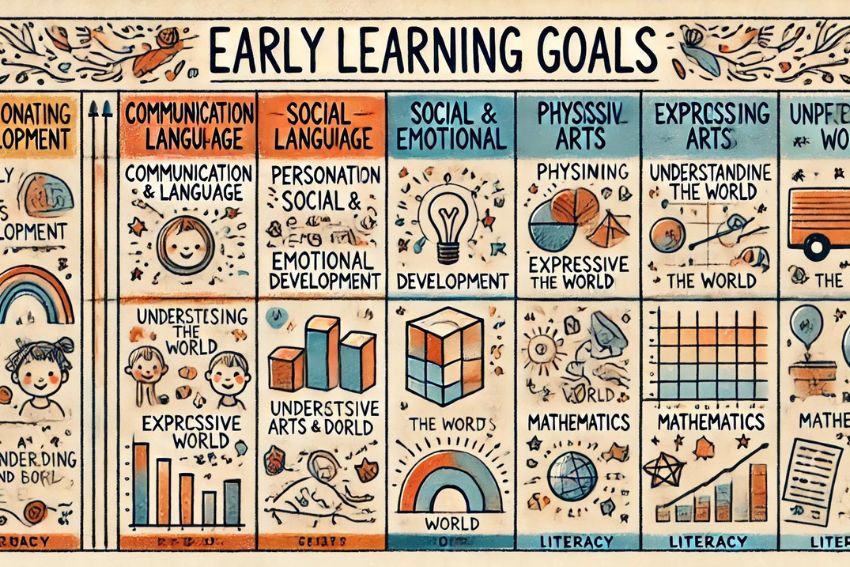
Table Of Content You Will Find
- What are Early Learning Goals?
- Prime Areas of Early Learning Goals
- Everything you need to know about Early Learning Goals
- How do Children Explore the World in Early Years?
- Literacy Skills
- What are the main aspects of Mathematics in Early Education?
- What’s included in Expressive Arts and Design for Young Children?
- Goals Related to Language and Communication.
- What are the Different Aspects of Body Development in Early Education?
- Goals Related to Self, Society, and Emotions.
- How is Knowledge Acquisition Emphasised in Early Learning Goals?
- How do Early Learning Goals Promote Holistic Development?
- Cognitive Development
- Outcomes Related to Social and Emotional Development?
- Concerning Physical Development
- Why is it Important for Parents to Understand Early Learning Goals?
- Key Features of Development
- How can Activities Support Early Learning Goals in Different Areas of Development?
- Assessment
- Why Early Learning Goals
- Inspiration
- Outcomes
- Conclusion
What are Early Learning Goals?
There are 7 areas of learning and development in this framework, which are then broken down into 17 individual goals. By the end of the reception year, these help to measure children’s progress. Visit gov.uk to learn more about framework of early learning goals. You can see one example of how school structures Early Learnings in the Uk.
EYFS Development
Development is a guidance document to support the Early Years Foundation Stage (EYFS). It helps early years practitioners support children from birth to 5.
Above all Development Matters shows typical developmental stages across age bands, so practitioners can observe, assess and plan for each child’s individual learning journey. It also promotes a personal approach so activities and experiences meet individual needs and interests.
Main Aspects
- Track children’s progress and next steps.
- Tips on what to look for in children’s behaviour and development.
- To integrate all areas of learning.
Prime Areas of Early Learning Goals
The Early Years Foundation Stage (EYFS) framework identifies three prime areas of learning that are crucial for children’s development. Firstly, these areas are the foundation for learning in other areas and are necessary for healthy development and future learning. Furthermore, by focusing on these prime areas, children have a base to build their learning journey.
Prime Areas
- Communication and Language
- Physical Development
- Personal, Social and Emotional Development
Specific Areas
In addition to the prime areas the Early Years Foundation Stage (EYFS) framework has four specific areas of learning. These areas build on the prime areas and support children’s overall development, giving them the skills and knowledge for future success.
- Literacy
- Mathematics
- Understanding the World
- Expressive Arts and Design
Everything you need to know about Early Learning Goals
How do Children Explore the World in Early Years?
By observing and investigating their environment, children develop curiosity, critical thinking, and a deeper understanding of the world. Additionally, it fosters a love of learning and creativity.
Literacy Skills
Children’s literacy skills in early learning are key to their cognitive development. Firstly, comprehension helps them understand context. Secondly, word reading helps them learn vocabulary. Additionally, writing helps them communicate. Moreover, these skills are the foundation for academic success and lifelong learning.
What are the main aspects of Mathematics in Early Education?
- Number Sense and Counting – Understanding and recognising numbers, counting objects, and basic number concepts.
- Basic Operations – Introduction to addition and subtraction, forming the basis for arithmetic.
- Patterns and Sequences – Identifying and creating patterns to develop logical thinking.
- Shapes and Spatial Awareness – Recognising shapes and understanding spatial relationships to enhance spatial reasoning.
- Measurement and Comparison – Learning to measure and compare length, weight, and volume.
- Data Handling – Sorting, categorising, and interpreting simple data.
- Problem-Solving – Using mathematics to solve practical problems and develop critical thinking skills.
For more detailed information about Early Years math check out: Early Years Maths
What’s included in Expressive Arts and Design for Young Children?
Expressive arts and design activities for young children cover a range of creative experiences. Firstly, they explore and express through various materials and elements like colour, design, texture, form, and function. Additionally, they promote imagination, sensory development, and fine motor skills.
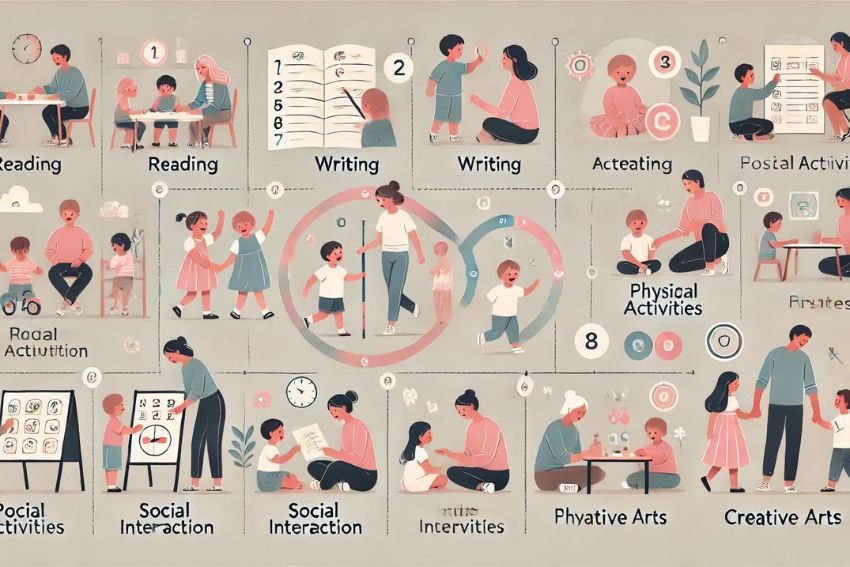
Goals Related to Language and Communication.
The language and communication focuses on basic skills like listening, understanding and communication. Also these goals are key to children’s overall development and future academic success. Also mastering these skills early on sets a strong foundation for language and social interaction.
What are the Different Aspects of Body Development in Early Education?
- Gross Motor Skills – Developing large muscle movements through activities like running, jumping, and climbing.
- Fine Motor Skills – Enhancing small muscle movements with tasks such as drawing, cutting, and writing.
- Coordination and Balance – Improving coordination and balance with activities like balancing, tricycle riding, and yoga.
- Body Awareness – Understanding body parts and spatial orientation through songs, games, and exercises.
- Strength and Endurance – Building muscle strength and cardiovascular fitness with climbing, running, and swimming.
- Sensory Development – Enhancing sensory processing with activities involving different textures, sounds, and tactile games.
- Health and Nutrition – Promoting healthy eating and physical activity habits for long-term well-being.
These aspects support physical growth, coordination, and overall health in early education.
Goals Related to Self, Society, and Emotions.
Early learning is about developing self regulation skills for emotional control. Also it’s about independence to navigate the world, building confidence for self assurance and nurturing positive relationships with others. Also these goals are the foundation for social and emotional wellbeing in children.
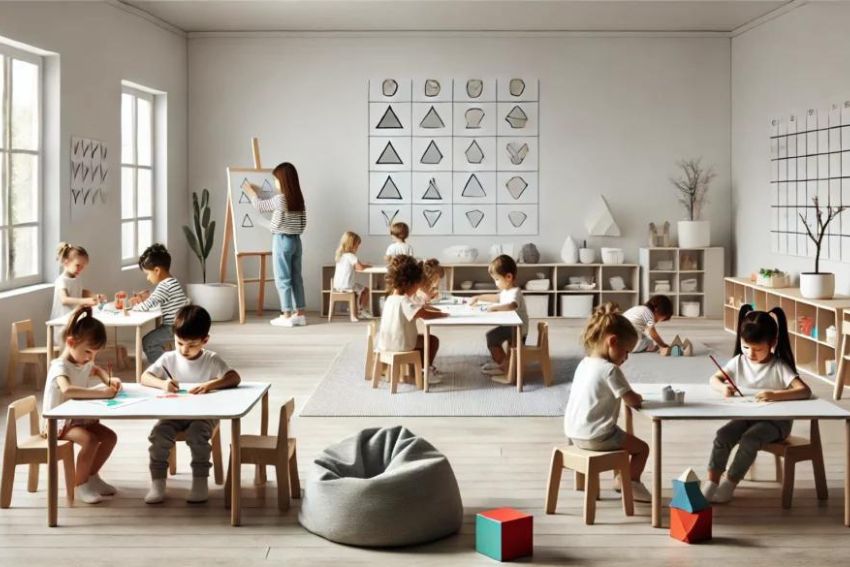
How is Knowledge Acquisition Emphasised in Early Learning Goals?
In Early Learning, knowledge acquisition is emphasised through various strategies. Firstly, encouraging curiosity and exploration allows children to ask questions and discover their environment, thereby fostering a love for learning.
Moreover, play-based learning integrates educational concepts into play, making it engaging and enjoyable. Additionally, developing strong language and communication skills through storytelling, reading, and conversations enhances children’s ability to understand and share knowledge.
Social interaction through collaborative activities and group work helps children learn from peers and develop social skills. Additionally, focusing on foundational skills like literacy, numeracy, and problem-solving provides the necessary tools for future learning. Furthermore, introducing children to different cultures and traditions broadens their perspectives and enhances their understanding of the world. Collectively, these strategies ensure that knowledge acquisition is a central component of Early Learning, thereby building a strong foundation for future education.
How do Early Learning Goals Promote Holistic Development?
Early Learning Goals nurture well-rounded children by addressing intellectual, physical, social, and emotional growth. Firstly, they stimulate cognitive skills through language, literacy, and numeracy activities, laying the foundation for academic success. Secondly, physical activities like climbing and running enhance motor skills and overall health. Moreover, group activities foster communication, empathy, and cooperation, helping children understand social norms.
Additionally, Early Learning Goals support emotional well-being by encouraging self-expression and resilience. Furthermore, arts, music, and imaginative play promote creativity and innovative thinking. Finally, exposure to diverse cultures broadens worldviews and fosters inclusivity. In summary, these goals ensure holistic development, preparing children for academic success and life beyond the classroom.
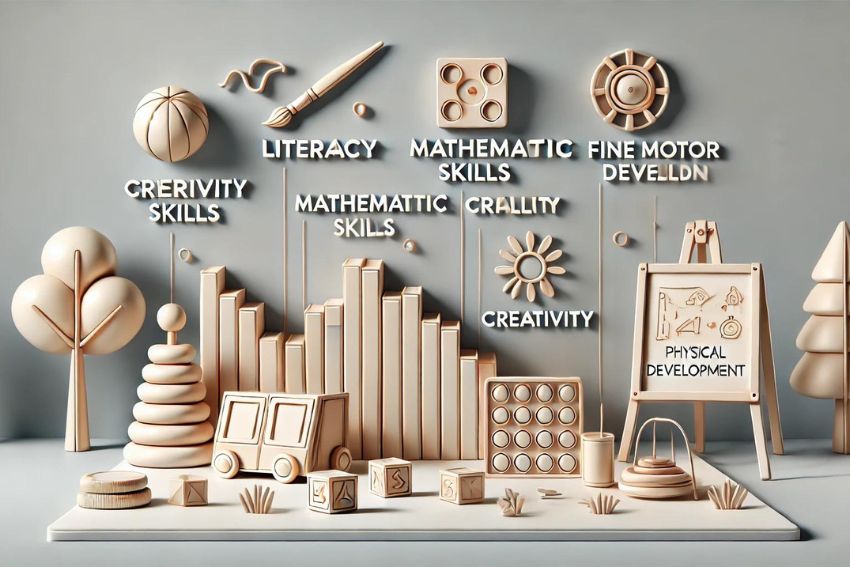
Cognitive Development
The Early Learning Goals aim to develop cognitive development by developing learning skills, literacy, numeracy, problem solving skills and academic success. Also these outcomes are key to laying the foundation for children’s future educational achievements. Also they will be ready for the challenges of their learning journey.
Outcomes Related to Social and Emotional Development?
Social and emotional development are key to laying the foundation for a child’s overall wellbeing. These goals focus on developing essential skills like empathy, self awareness and building positive relationships which are key to success in both academic and social settings.
Concerning Physical Development
Physical development aim to develop children’s motor skills, coordination and physical abilities. Also to instill healthy habits like healthy eating and regular exercise to support children’s overall health and from early years.
Why is it Important for Parents to Understand Early Learning Goals?
Knowing Early Learning Goals is important for parents as it allows them to be involved in their child’s learning. Also it allows them to provide the right support and ensure their child is on track for future academic success, so parents can be effective partners in their child’s educational journey.
Key Features of Development
Child development involves intellectual, physical, social, emotional, and creative growth, ensuring balanced development.
- Intellectual Development – Enhances cognitive abilities through language, literacy, and numeracy activities, laying a foundation for academic success.
- Physical Development – Promotes growth through motor skills activities like running, climbing, and drawing, improving coordination and health.
- Social Development – Builds social skills through group activities, teaching communication, empathy, and cooperation.
- Emotional Development – Encourages understanding and managing emotions, fostering self-expression, resilience, and a positive self-image.
- Creative Development – Stimulates creativity through arts, music, and imaginative play, promoting innovative thinking.
- Cultural Awareness – Broadens perspectives by exposing children to diverse cultures and traditions, fostering inclusivity and respect.
How can Activities Support Early Learning Goals in Different Areas of Development?
Activities support overall development in multiple ways. Firstly, intellectual skills are enhanced through reading, puzzles, and counting games. Additionally, physical health is promoted through outdoor play and sports. Furthermore, social skills are developed through group activities and role play, which foster communication and teamwork. Moreover, emotional growth is supported through storytelling and arts, helping children manage their emotions. Creativity is stimulated through arts and crafts, music, and imaginative play. Lastly, cultural awareness is broadened through multicultural activities. Together, these activities address all areas of development, preparing children for the future.
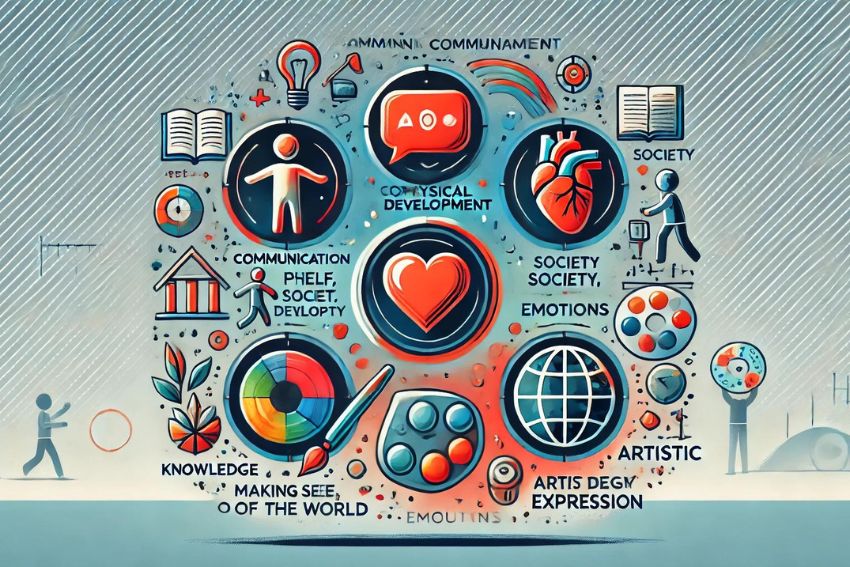
Assessment
At the end of the reception year, teachers assess each child against the 17 Early Learning Goals using the Early Years Foundation Stage Profile (EYFSP). Subsequently, this is shared with parents and the child’s Year 1 teacher to support the transition into main Stage.
Why Early Learning Goals
Early Learning Goals provide a framework for educators and parents to support a child’s development. Specifically, they help children:
- Develop communication and social skills.
- Literacy and numeracy foundation.
- Physical skills for life.
- Understanding of the world.
- Inspiration
Inspiration
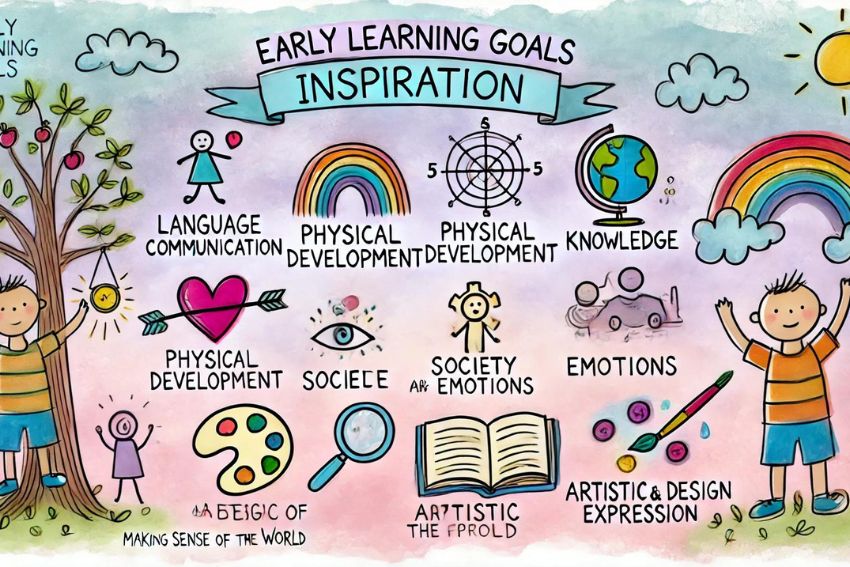
Early Learning Goals focus on children’s curiosity and potential. Additionally, they emphasise individuality and a lifelong love of learning, encouraging exploration, imagination, and creativity.
Moreover, these goals tailor educational journeys to each child’s strengths, providing a roadmap for support and success. These encompass emotional, social, and physical development, ensuring well-rounded, confident children ready for future challenges.
Furthermore, by prioritising fun and engaging play-based learning, learning is more enjoyable and instill a lifelong love of discovery. Ultimately, they create an environment where every child can thrive and grow into a curious, capable, and confident individual.
Outcomes
Knowing the early years outcomes helps educators and parents support children’s growth. The following include main outcomes:
1. Cognitive Development
- Improved Learning Skills: Early education develops the brain, children can learn and problem solve better.
- Literacy and Numeracy Skills: Children develop basic reading, writing and math skills
2. Social and Emotional Development
- Social Skills: Children learn to share, cooperate and communicate with peers and teachers.
- Emotional Regulation: Early education provides a structured environment where children can manage their emotions and develop resilience. Additionally, this structured setting supports children in understanding and expressing their feelings appropriately.
3. Physical Development
- Motor Skills: Physical activities develop fine and gross motor skills.
- Health Awareness: Children learn about healthy habits including nutrition and exercise which contributes to overall wellbeing.
4. Language Development
- A language-rich environment helps children expand their vocabulary and language skills. Consequently, they become better communicators. Moreover, this foundation supports their reading and writing abilities as they grow.
- Early education encourages children to express themselves and listen to others. Consequently, they learn to communicate their thoughts and feelings more effectively. Additionally, these skills help them build better relationships with their peers and adults.
5. School Readiness
- Adapting to Structure: Early education prepares children for the structure of primary school.
- Confidence and Self-Independence: Children develop the confidence and self-independence to thrive in a school environment. Additionally, these skills enable them to tackle challenges and engage more actively in their learning experiences.
Ways to Support Early Years Outcomes
To get the most out of early years education, try the following strategies:
- Interactive Learning: Firstly, use activities that encourage active participation.
- Individualisation: Additionally, tailor learning experiences to each child’s individual needs.
- Parent Involvement: Furthermore, encourage parents to be involved in their child’s learning and reinforce learning at home.
- Qualified Educators: Lastly, ensure educators are trained in early childhood education and development.
Conclusion
The cornerstone of a child’s education is their early learning goals. Thus, by concentrating on these objectives, educators and parents may guarantee that kids are prepared for future learning. Furthermore, realising and putting these objectives into practice can have a significant impact on a child’s early education.
It is essential that educators and parents comprehend the Early Learning Goals. These objectives support kids in gaining critical abilities in social and emotional development, reading, numeracy, communication, and physical and mental health. Consequently, this guarantees that they are ready for success in the future.
The reason Early Learning Goals work so well is that they give early childhood education a structure. Every youngster can develop and achieve thanks to these objectives. Furthermore, they provide a solid foundation for future learning. Consequently, children become more confident and capable learners. If your child needs assistance check out our early learning tutors.


